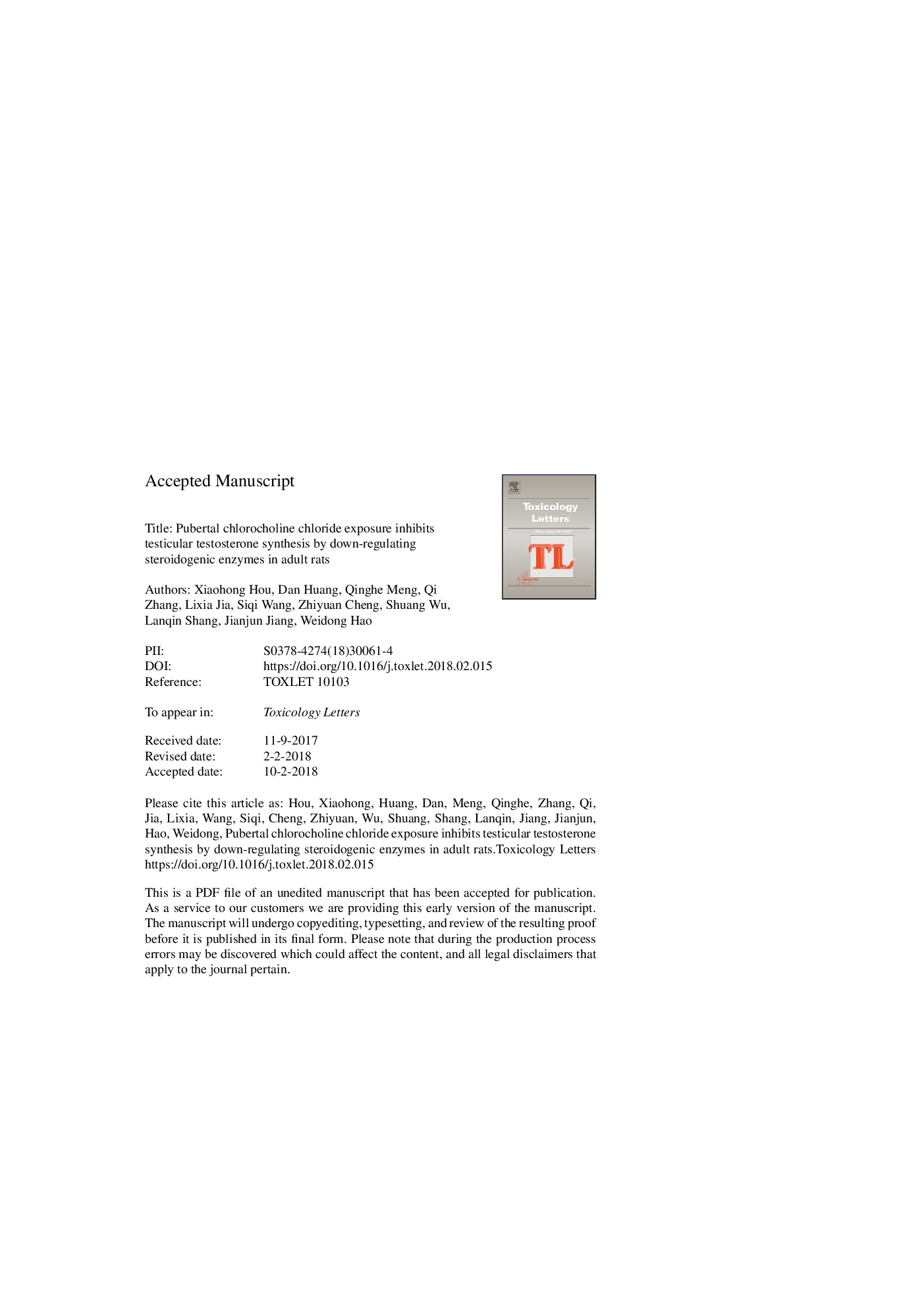| Article ID | Journal | Published Year | Pages | File Type |
|---|---|---|---|---|
| 8553328 | Toxicology Letters | 2018 | 18 Pages |
Abstract
Chlorocholine chloride (CCC) is widely used to regulate plant growth. Considerable attention has been focused on its reproductive and developmental toxicities. In order to investigate the effects of pubertal CCC exposure on testicular testosterone (T) synthesis, male SD rats were exposed to CCC by oral gavage at doses of 0, 75, 150 and 300â¯mg/kg bw/day from postnatal day 23 to 70. We observed that pubertal CCC exposure lowered the body weight and the mean Johnsen's score. The percentage of seminiferous tubules with deciduous spermatogenic cells was increased in the 75 and 150â¯mg/kg bw/day groups. In addition, pubertal CCC exposure reduced the testicular absolute weights in the 75 and 300â¯mg/kg bw/day groups as well as the sperm motility in epididymides in the 150â¯mg/kg bw/day group. A significant decrease of testicular T was observed while levels of hypothalamic gonadotropin-releasing-hormone (GnRH) and serum luteinizing hormone (LH) were increased. Protein levels of steroidogenic acute regulatory (StAR), cholesterol side-chain cleavage enzyme (P450scc) and 3β-hydroxysteroid dehydrogenase (3β-HSD) were decreased. Taken together, these results indicate that pubertal CCC exposure in rats might decrease testicular T synthesis by suppressing the expression of steroidogenic enzymes, which partially lead to an impairment on spermatogenesis.
Related Topics
Life Sciences
Environmental Science
Health, Toxicology and Mutagenesis
Authors
Xiaohong Hou, Dan Huang, Qinghe Meng, Qi Zhang, Lixia Jia, Siqi Wang, Zhiyuan Cheng, Shuang Wu, Lanqin Shang, Jianjun Jiang, Weidong Hao,
